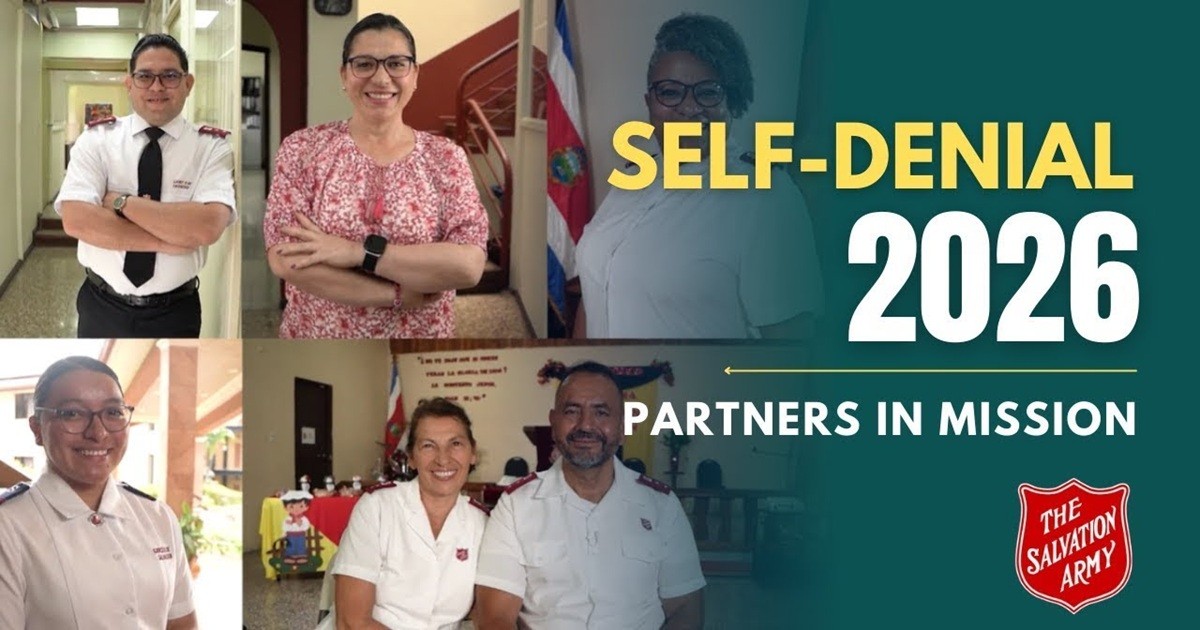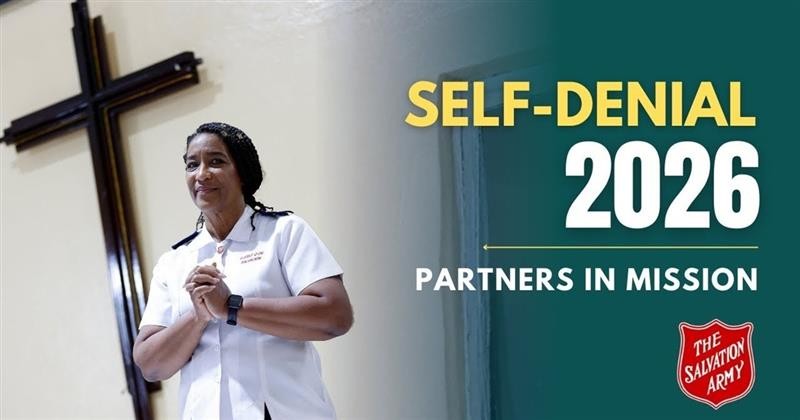 When Jesus walked the earth, he encouraged his followers to reach out to those in prison. He spoke of his kinship with men and women who were incarcerated: “… I was in prison and you came to visit me…. Whatever you did for one of the least of these brothers and sisters of mine, you did for me” (Matthew 25:36, 40). The Salvation Army became a Movement of faith because our Founders heeded the Lord's words. They sought out the undesirables in 19th-century England who were hard to love; people whom society had marginalized. Just as Jesus saw the value in people, so, too, did the early Salvationists.
When Jesus walked the earth, he encouraged his followers to reach out to those in prison. He spoke of his kinship with men and women who were incarcerated: “… I was in prison and you came to visit me…. Whatever you did for one of the least of these brothers and sisters of mine, you did for me” (Matthew 25:36, 40). The Salvation Army became a Movement of faith because our Founders heeded the Lord's words. They sought out the undesirables in 19th-century England who were hard to love; people whom society had marginalized. Just as Jesus saw the value in people, so, too, did the early Salvationists.
Our prison ministry grew, and The Salvation Army uniform has become a respected and visible presence in justice systems around the world. In Canada, officers and staff visit federal and provincial institutions to provide chaplaincy services to people in the correctional system. These services are a much-needed and important part of our ministry as one of Canada's largest social service organizations.
What we see less and less of, however, is members of local corps actively involved in living out Christ's commission to serve those in the justice system as an act of Christian service in their lives. Why is that?
While much of corrections work is best done by trained professionals, Salvationists can support this ministry in a variety of ways. I worry that although we sing songs about “loving the unloved,” we may have lost the vision of how powerful it can be to reach out to a stranger who is alone, dejected and terrified. You see, being visited by someone whose “job” it is to do prison work is not the same as being visited by someone who is there simply because they have made a conscious decision to care. The impact on both the visitor and the offender can be life-changing. Simple, individual acts like this should be at the heart of our Movement.
The heart of a volunteer—especially one whose love for the unloved comes from the very core of our Christian faith—is a powerful force for good.
What would it mean for corps to recapture the vision of this ministry?
Serving offenders requires mature Christian love, a time commitment and a willingness to provide practical assistance. Having someone to talk with who isn't a part of the justice system can mean the world to an offender. Volunteers are not there because they will write a report to the authorities. They won't decide whether or not someone is guilty, but they can listen and help in meaningful ways.
This can be risky. Some prisoners are manipulative and may abuse simple acts of kindness. It is important to use discernment and remain careful about these relationships.
As well, it is difficult these days for people to gain access to correctional institutions. In addition to increased levels of security, there are bureaucratic structures and policies that make volunteering in prisons challenging. Many programs require that volunteers attend training sessions before they are allowed to participate.
There are, however, opportunities to minister to offenders outside of correctional institutions. For example, The Salvation Army is active in the court system, so it may be possible to support court chaplains in their work. The Army also offers a variety of innovative programs through its correctional and justice services in the community that help offenders, victims and their families find healing and restoration.
For centuries, ordinary people with a heart for the unloved have reached out to offenders. The power of this ministry can change the lives of so many people if we could only recapture this vision.
Seek out Salvation Army and other volunteer groups working with offenders and offer to help. It may take some time to find the right role for you, and you may even have a few false starts, but this ministry can be a transforming experience.









Leave a Comment